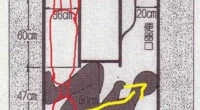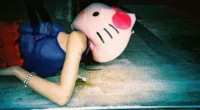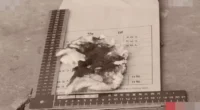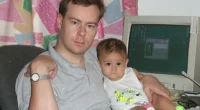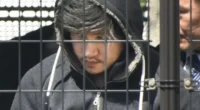CHINA – The outstanding police officer Dongmingyang, while investigating crimes and achieving many successes, fell into drug addiction, leading to a worse life with many regrets.
In 1983, upon learning that the Beijing Police Bureau was recruiting police officers, 20-year-old Dongmingyang quit his job at a steel plant to apply, pass the exams, and become a criminal police officer. He quickly became a prominent figure, frequently achieving successes and receiving commendations.
In his third year as a police officer, Dongmingyang achieved his first third-class merit: apprehending a child rapist. The criminal acted randomly, leaving few clues, so Dongmingyang visited the crime scene every day, looking for suspicious individuals for the victim to identify. On the 40th day, the rapist was caught.
At the age of 25, Dongmingyang got married and had a son, enjoying a fulfilling life.
In his seventh year as a police officer, Dongmingyang was transferred to the special operations unit, where he had to deeply engage with gangs to establish intelligence networks, posing as a “big brother” among those secretly providing information to the police. Due to the highly confidential nature of his work, he didn’t tell his family or most of his colleagues.
In the 1990s, Dongmingyang was dubbed “rich Dong” for his designer clothing, waist pager, mobile phone, slicked-back hair, and luxury car, meeting various underworld figures.
Relying on his good relationships with informants in the underworld, Dongmingyang’s work became smoother. At the age of 33, he received over 10 commendations, more than half of which were from the Ministry of Public Security, becoming a “star” in both the police and underworld circles.
When a major case occurred, the police chief would ask, “Has Dongmingyang arrived?” Criminals praised him: “When the big brother stamps his foot, the whole area shakes.” This made him so confident that he aimed to excel in special operations to the extent of mastering both sides of the law.
“Now looking back, it was truly crazy and ironic,” Dongmingyang said.
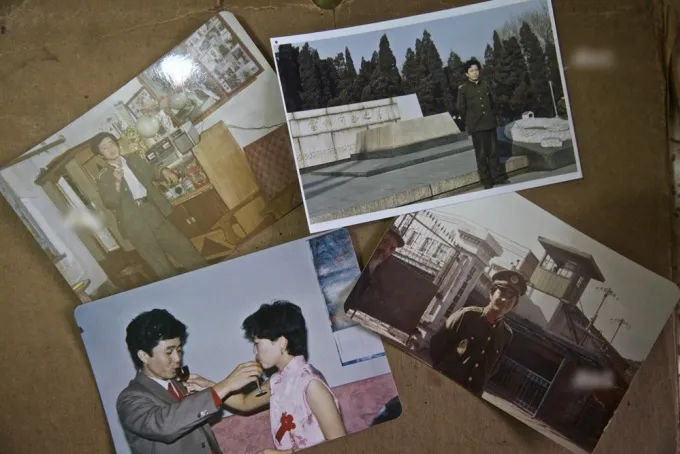
In March 1996, Beijing witnessed the “Bach Paulsen case,” the largest case since the establishment of the People’s Republic of China. Bach Paulsen, armed with a gun, killed 17 people, including 5 police officers, and committed dozens of robberies. The Beijing police faced immense pressure to solve the case quickly.
In April of that year, through an informant, Dongmingyang obtained crucial information: a man named “Hei si Bing” in the district Dongmingyang was responsible for, equipped with rifles, submachine guns, and grenades. In urgent times, he disguised himself as a drug trafficker to infiltrate “Hei si Bing’s” hideout.
The thugs in the drug den and brothel had never seen Dongmingyang smoke drugs in front of them, so they began to suspect, with some even pointing guns at him, asking if he was a cop. With no other choice, Dongmingyang smoked drugs for the first time. Despite feeling nauseous after the first puff, he wondered, “Could this thing really be addictive?” However, the phrase “trying once won’t lead to addiction” completely changed his life thereafter.
To solve the case, he repeatedly infiltrated gangs, pretending to be a drug addict to blend in. Gradually, he began to crave what he once found “disgusting,” leading Dongmingyang into a long and dark tunnel.
Realizing he was addicted, Dongmingyang knew he had to quit drugs immediately. He thought that with his determination, quitting addiction wouldn’t be too difficult. “I’m not afraid of death, so what’s there to fear about this?” he thought.
Dongmingyang isolated himself, but the power of drugs was much greater than he imagined. In the battle against drugs, he was always the loser. From smoking drugs with paper rolls to using syringes, addiction haunted him like a nightmare. “Sometimes I had to investigate and interrogate all night, with no time to slowly smoke, so I had to rush to the restroom to use the needle. Now my arms are still full of needle marks.”
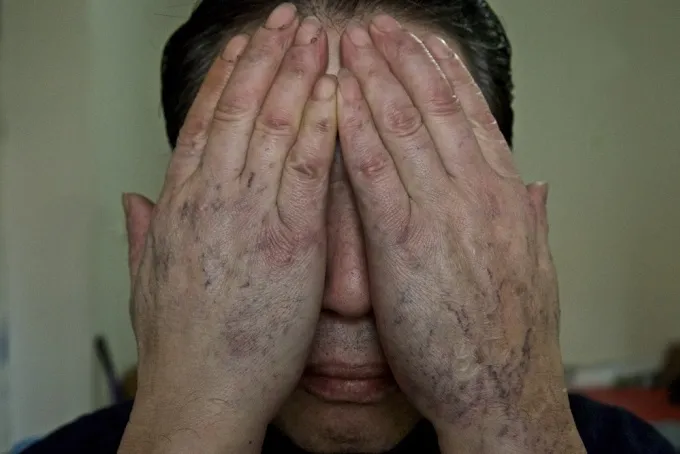
During the struggle between addiction and rehabilitation, Dongmingyang still excellently completed his covert missions. In early 1997, through “Hei si Bing,” he lured his accomplice under the alias “Mr. Tan” to appear as a gun buyer, thereby dismantling an underground gun-selling network. After solving the case, Dongmingyang was awarded a third-class commendation by the Ministry of Public Security. This was also the last medal in his career.
Due to prolonged drug use without being able to quit, his health deteriorated, and he couldn’t work normally. In 2001, he was transferred from the frontline to a review department.
What made him more uncomfortable than the cycle of addiction and relapse was the mockery behind his back from colleagues. He said he once wanted to shout in the office, “I got hooked on drugs because of my job, I’m not a scumbag cop.”
By the end of 2005, Dongmingyang suffered from drug addiction and depression, requesting sick leave. At the age of 42, the age when his peers were promoted to department heads and directors.
After leaving, he found life meaningless, and his addiction worsened. To obtain drugs, he sought out informants he had trained before and exchanged drugs with them.
In 2011, an addict lured Dongmingyang into selling drugs to him to gain recognition. Dongmingyang sold 0.32 grams of heroin to him for 300 RMB and was caught red-handed.
In court, the police presented evidence proving that Dongmingyang was addicted to drugs while on duty, and he was ultimately sentenced to six months in prison and fined 3,000 RMB.
Seeing his image being escorted through the corridor reflected on the prison wall, Dongmingyang burst into tears. “In prison, I felt trapped, washing my face with tears all day, even considering death to end it all.” But a year after his release, he was caught in a similar case again, this time receiving a one-year sentence.
After his release on July 19, 2012, Dongmingyang lived with his son in the same 63-square-meter house of his parents – his own small family had shattered.
Dongmingyang’s wife was a worker, naturally cheerful and gentle, but the influence of her husband’s work threatened her to the point of developing psychological problems. After learning about her husband’s drug addiction, she became mentally distressed and was diagnosed with level 2 mental disability in 2001. A few days before his first drug dealing, he took his wife to a mental hospital.
Due to a lack of communication since childhood, Dongmingyang’s son suffered from mild autism. He expressed deep regret for being absent during his son’s upbringing. Despite his utmost efforts to provide the best material conditions during the “glorious years,” due to the nature of his work and the uncertainty of sacrificing any day, he deliberately avoided building a close relationship with his son, and now their father-son relationship is very weak.
Due to his crimes, his pension was cut off, leaving him without a source of income. The cost of rehabilitation nearly depleted his pension and savings from his parents. In one year alone, the cost of medication was nearly 30,000 RMB.
Due to drug addiction, Dongmingyang suffered from heart disease, decreased memory, broken muscles, and found it difficult to lie down or sit, no matter how many sleeping pills he took. He once considered ending his life but hesitated for fear of burdening his elderly parents and worrying that his son would bear the stigma for life.
A lawyer once asked Dongmingyang if he could turn back time to his first encounter with drugs in May 1996, would he choose differently? Dongmingyang hesitated for a moment and said he had no regrets about his initial choice: “I always thought I would sacrifice in my position, so what’s wrong with that? What I leave behind for my family won’t be the shame of today but glory.”
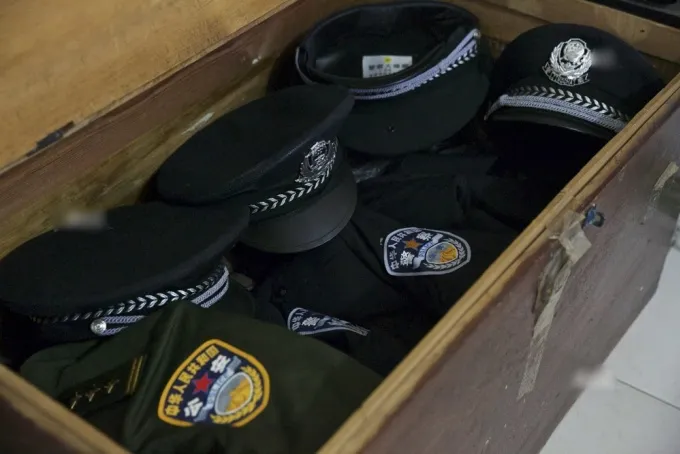
Over the past 20 years, Dongmingyang has kept his police uniforms, commendations, medals, and the old diary.
In 1983, on the day he received the police recruitment notice, he excitedly wrote in his diary: “Today is a day I will never forget. Thanks to my own efforts, I have been accepted into the Beijing Police Bureau. On the journey of life, starting today, I have turned to a glorious page, and I will fight for the righteousness I admire.”
Over the years, many media outlets have interviewed Dongmingyang, and there has been much debate: Is he ultimately a criminal or a hero?
Dongmingyang only said: “Many people still call me a policeman, but I feel unworthy. I just hope you can write a sentence: I am not a scumbag cop, that’s enough.”
Dongmingyang used his own experience to warn others: “I used to be full of dreams, but drugs destroyed everything. I had to go through hundreds of times of withdrawal; you can’t imagine how difficult this process is. Once you loosen up, you’ll be easily tempted. You may not fear death, want to experiment with everything in life, but drugs alone are not allowed.”

